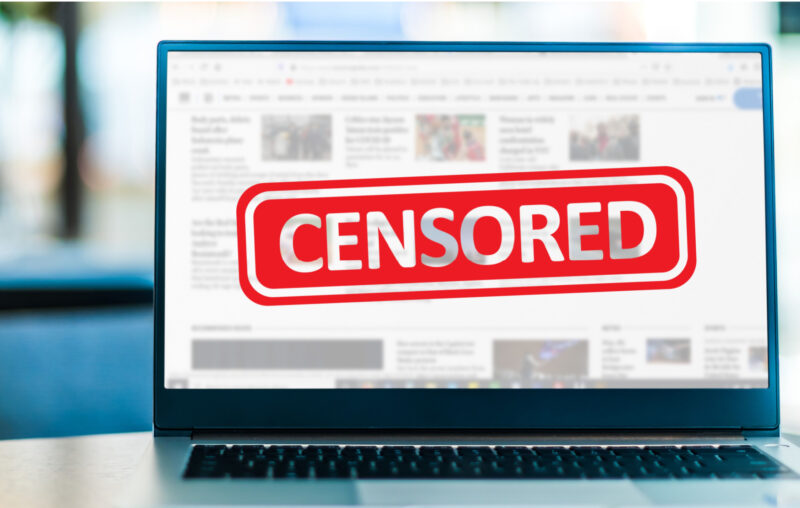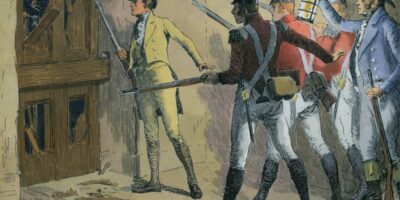How AIER Helped to Hobble Fauci’s “Ministry of Truth”

On Independence Day 2023, Federal judge Terry A. Doughty of the Western District of Louisiana issued a preliminary injunction in the case of Missouri v. Biden, ordering a slew of top Biden administration officials to stop cajoling social media companies into silencing criticism of their COVID-19 lockdowns and other policies. AIER played a key role in this important check on Federal encroachment of Americans’ civil liberties.
On 17 December 2021, a Freedom of Information Act (FOIA) request by Ethan Yang and Phil Magness revealed evidence that, contra the First Amendment, the federal government sought to squelch lockdown critics. As Magness and James Harrigan revealed, senior officials at the National Institutes of Health (NIH) coordinated a media pressure campaign targeting lockdown critics, including the three authors of the Great Barrington Declaration (GBD).
Those three scientists – Martin Kulldorff, Jay Bhattacharya, and Sunetra Gupta – had convened a small conference at AIER in October 2020 to discuss the devastating consequences of the COVID-19 lockdowns. The conference produced a brief statement, the GBD, that argued against lockdowns as a pandemic response policy and espoused instead a scientifically-based “focused protection” protocol. Four days later, as the GBD began to gather momentum, then-NIH Director Francis Collins ordered Fauci to wage a “quick and devastating published take down” of the GBD and its authors.
Fauci immediately ordered subordinates to compile a list of political op-eds attacking the GBD. Coordinating with Collins, he then waged a media campaign to brand the GBD authors as “fringe” and to describe their anti-lockdown arguments as “dangerous” and “nonsense.”
Social media companies followed Fauci’s cues:
- Google de-boosted search engine results for the GBD website. Instead, the search engine giant promoted political op-eds by lockdowners, even prioritizing false attacks on the GBD by conspiracy websites over mainstream news coverage.
- Reddit followed suit by removing links to the GBD from discussions about COVID-19 policy.
- As the Twitter Files later revealed, Twitter also suppressed the GBD and effectively shadow-banned the accounts of its authors.
The “devastating take down” achieved exactly what Fauci and Collins intended, the suppression of dissenting scientific viewpoints on the relative cost and benefits of their own lockdown policies. Its “chilling effect” on speech included muting criticism of the John Snow Memorandum, a hasty and ill-conceived pro-lockdown counter to the GBD.
Federal courts rarely issue decisions on federal holidays, so it’s likely that Judge Doughty wanted his 155-page ruling understood as a veritable declaration of independence from over two years of COVID censorship, stoked and promoted by bureaucrats such as Fauci and the politicians who enabled him. Citing the products of AIER’s email FOIA request, the ruling meticulously documents how government officials advanced their smear campaign against the GBD, its authors, AIER, and other critics.
Judge Doughty says the case “arguably involves the most massive attack against free speech in United States’ history.” If the facts alleged are true (and there is little doubt about that), the government has “blatantly ignored the First Amendment’s right to free speech.” Its actions raise issues that “go beyond party lines” because its suppression threatens to replace “an uninhibited marketplace of ideas in which truth will ultimately prevail” with a “monopolization of the market.”
The government threatened the existence, and impeded the efficiency, of the market for ideas by colluding with and/or coercing social media platforms, through the federal regulatory system, to suppress what it called disinformation, misinformation, and malinformation (“dismisinfoganda”). Doughty notes, however, that the government does not know what is true or false and that the First Amendment protects even false speech. The “principal function” of that protection “is to invite dispute,” not to squelch debate or opposing viewpoints.
The Founders and Framers put protection of speech and the press first in the Bill of Rights because, as the ruling notes, it “is the indispensable condition of nearly every other form of freedom.”
George Washington said without free speech, people could be “led, like sheep, to the slaughter.”
Benjamin Franklin argued that “whoever would overthrow the liberty of a nation must begin by subduing the free acts of speech.”
Thomas Jefferson noted that “reason and free inquiry are the only effectual agents against error.”
To protect free speech and the marketplace of ideas from additional encroachments, and to shield Americans from what he considers “an almost dystopian scenario” in which the United States government assumes “a role similar to an Orwellian ‘Ministry of Truth’,” Judge Doughty granted the plaintiff’s motion for preliminary injunction. Specifically, the Department of Health and Human Services, the National Institute of Allergy and Infectious Diseases, the Centers for Disease Control and Prevention, the United States Census Bureau, the Federal Bureau of Investigation, the Department of Justice, the Cybersecurity and Infrastructure Security Agency, Homeland Security, the State Department, and numerous named administration officials “are hereby enjoined and restrained” from “meeting with” or “engaging in any communication of any kind” with “social-media companies for the purpose of urging, encouraging, pressuring, or inducing in any manner the removal, deletion, suppression, or reduction of content containing protected free speech,” and other actions detailed in the preliminary injunction.
The matter will likely end up at the Supreme Court, but for now major federal agencies can be held in contempt of court if they continue to indirectly subvert free speech through social media proxies.














